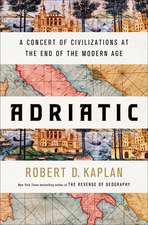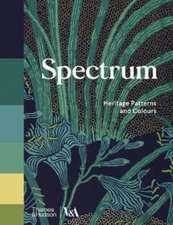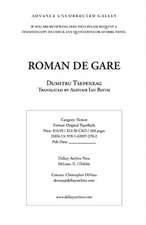Work
Autor James Suzmanen Limba Engleză Paperback – 18 ian 2022
| Toate formatele și edițiile | Preț | Express |
|---|---|---|
| Paperback (2) | 64.67 lei 22-36 zile | +34.40 lei 6-12 zile |
| Bloomsbury Publishing – sep 2021 | 64.67 lei 22-36 zile | +34.40 lei 6-12 zile |
| Transworld Publishers Ltd – 18 ian 2022 | 103.93 lei 22-36 zile |
Preț: 103.93 lei
Nou
Puncte Express: 156
Preț estimativ în valută:
19.89€ • 21.62$ • 16.72£
19.89€ • 21.62$ • 16.72£
Carte disponibilă
Livrare economică 31 martie-14 aprilie
Preluare comenzi: 021 569.72.76
Specificații
ISBN-13: 9780525561774
ISBN-10: 0525561773
Pagini: 464
Dimensiuni: 139 x 210 x 26 mm
Greutate: 0.41 kg
Editura: Transworld Publishers Ltd
ISBN-10: 0525561773
Pagini: 464
Dimensiuni: 139 x 210 x 26 mm
Greutate: 0.41 kg
Editura: Transworld Publishers Ltd
Notă biografică
James Suzman, Ph.D., is an anthropologist specializing in the Khoisan peoples of southern Africa. A recipient of the Smuts Commonwealth Fellowship in African Studies at Cambridge University, he is now the director of Anthropos Ltd., a think tank that applies anthropological methods to solving contemporary social and economic problems. He lives in Cambridge, England.
Caracteristici
James Suzman's last book, Affluence without Abundance, was published to standout reviews, received blurbs from figures including Yuval Noah Harari and established him as a huge authority in the anthropological field
Recenzii
As automation threatens to completely disrupt the global job market, it is urgent to rethink the economic, psychological and even spiritual importance of work. By examining the lives of hunter-gatherers, apes and even birds, Suzman highlights that what we consider "natural" is often just the questionable legacy of industrial gurus and agricultural religions. Knowing the history of how we have spent our time in the past will hopefully enable us to make more sensible choices in the future
There is eminently underlinable stuff on most pages . . . Fascinating
In this illuminating "deep history", the anthropologist James Suzman interrogates mainstream economic assumptions about human nature and argues that to make sense of our modern culture of rising inequality we must first understand our past
For too long, our notions of work have been dominated by economists obsessed with scarcity and productivity. As an anthropologist, James Suzman is here to change that. He reveals that for much of human history, hunter-gathers worked far less than we do today and led lives of abundance and leisure. I've been studying work for two decades, and I can't remember the last time I learned so much about it in one sitting. This book is a tour de force
A groundbreaking history of work, which exposes the productivity-at-all-costs mindset to strike a blow at the myth of the economic problem. I learned something new on every page
Brilliant . I thought I had read enough by now to know what work is and why we so often feel compelled to work - but I was wrong
Deeply researched, broad in scope and filled with insight, this is a modern classic. Every page brings something worth thinking hard about
Automation of all kinds looms on the horizon. Luckily, James Suzman is here with a revelatory new history that makes a persuasive case: that human industry can light a path forward, even in a future where we're put out of work by our own inventions
Chronicles how much humankind can still learn from the disappearing way of life of the most marginalised communities on earth
Elegant and absorbing . Rich with ethnographic detail, stylish, perceptive, compassionate and, ultimately, tragic
Here is one of those few books that will turn your customary ways of thinking upside down. An incisive and original new history that invites us to rethink our relationship with work - and to reimagine what it means to be human in an ever-more automated future
There is eminently underlinable stuff on most pages . . . Fascinating
In this illuminating "deep history", the anthropologist James Suzman interrogates mainstream economic assumptions about human nature and argues that to make sense of our modern culture of rising inequality we must first understand our past
For too long, our notions of work have been dominated by economists obsessed with scarcity and productivity. As an anthropologist, James Suzman is here to change that. He reveals that for much of human history, hunter-gathers worked far less than we do today and led lives of abundance and leisure. I've been studying work for two decades, and I can't remember the last time I learned so much about it in one sitting. This book is a tour de force
A groundbreaking history of work, which exposes the productivity-at-all-costs mindset to strike a blow at the myth of the economic problem. I learned something new on every page
Brilliant . I thought I had read enough by now to know what work is and why we so often feel compelled to work - but I was wrong
Deeply researched, broad in scope and filled with insight, this is a modern classic. Every page brings something worth thinking hard about
Automation of all kinds looms on the horizon. Luckily, James Suzman is here with a revelatory new history that makes a persuasive case: that human industry can light a path forward, even in a future where we're put out of work by our own inventions
Chronicles how much humankind can still learn from the disappearing way of life of the most marginalised communities on earth
Elegant and absorbing . Rich with ethnographic detail, stylish, perceptive, compassionate and, ultimately, tragic
Here is one of those few books that will turn your customary ways of thinking upside down. An incisive and original new history that invites us to rethink our relationship with work - and to reimagine what it means to be human in an ever-more automated future

















